Still rockin’ in the free world?
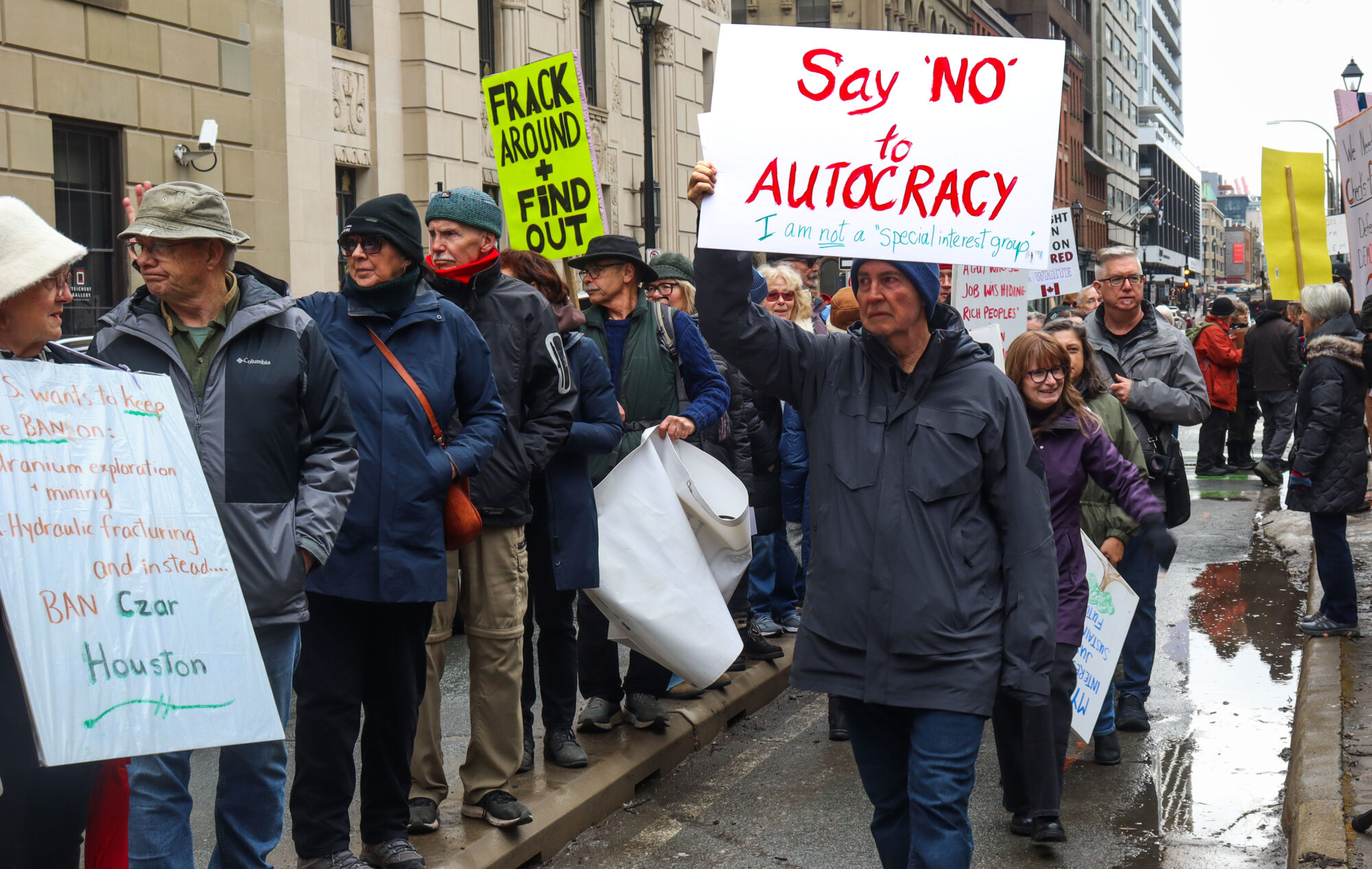
caption
In winter 2025 the Nova Scotia government moved quickly to consolidate power. This prompted protests.The strength of Nova Scotian democracy is being tested by the Tim Houston government
When 200 people gather to yell at you at lunchtime on a Wednesday… it’s a sign you may have messed up. The crowd thickened; people stopped trying to keep Hollis Street and the bike lane clear. Passing cargo trucks honked. Rockin’ in the Free World blared from loudspeakers. Neil Young wrote that song during the U.S. presidency of George H. W. Bush, but the protestors gathered in Halifax on a muggy March 5 wanted nothing to do with American politics.
At the gates of Province House, they chanted in defence of democracy and freedom of information. Government House leader Brendan Maguire peeked down from a window. Several signs compared Nova Scotia’s premier, Tim Houston, to the American president. “Dump the Trump playbook.” “Tim Houston… #notmyKing.” “Nobody voted for Tim Trump.”
On the day he was inaugurated, Donald Trump fell into lockstep with anti-democratic populists like Javier Milei in Argentina and Nigel Farage in the UK. Has that threat crept into Nova Scotia?
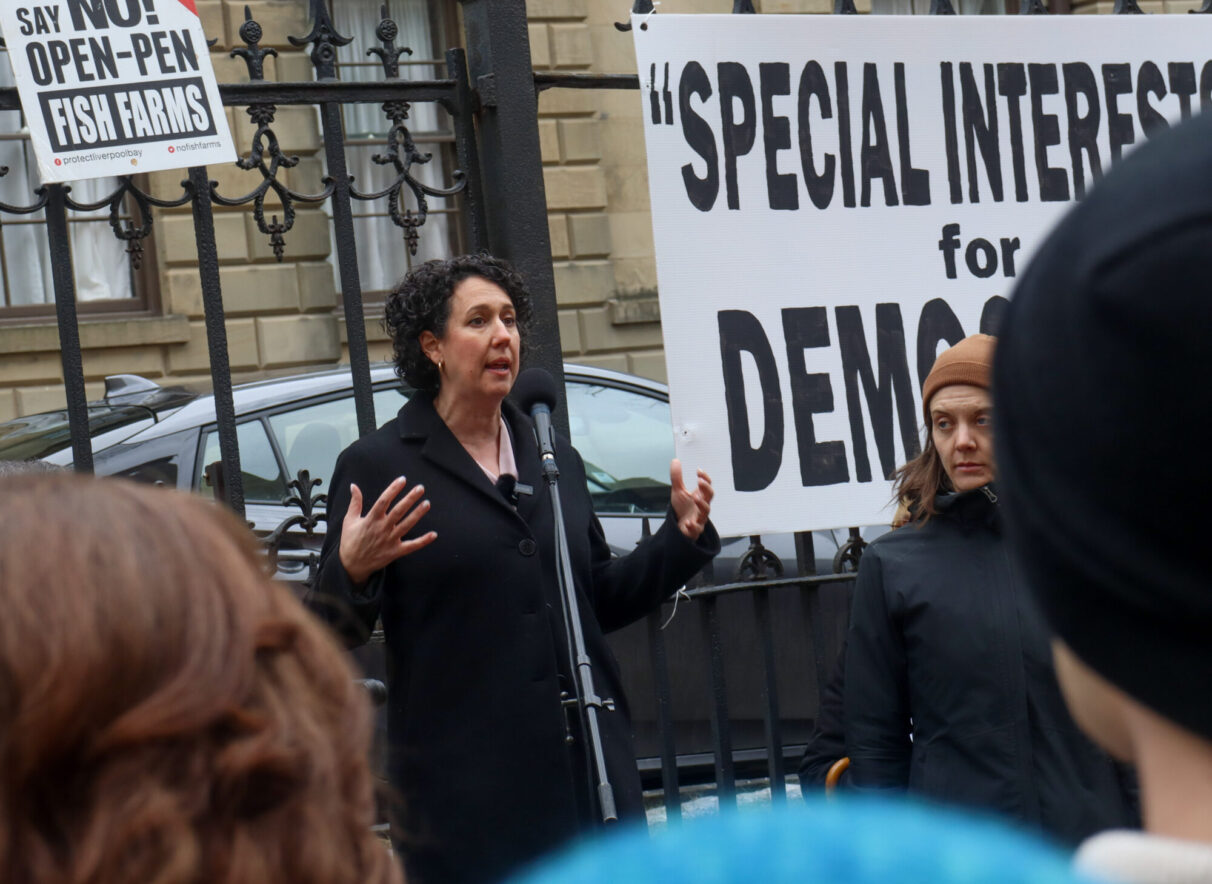
caption
Claudia Chender, NDP leader, speaks to protesters outside Province House.The leaders of the two Opposition parties, New Democrat Claudia Chender and Liberal Derek Mombourquette, spoke to the crowd. Mombourquette said everyone was there because they want to “protect the democracy that we have.” The pair stood under a weather-proof sign which read ‘SPECIAL INTERESTS’ FOR DEMOCRACY. The sign was big enough that, were it raining, they could have taken it down and used it to stay comfortably dry.
“We are all glued to the news south of the border, but it is happening right here, it is happening–” Cheers drowned Chender out before the end of her sentence. “The legislative agenda in this session,” she said, “has been an assault on democracy.”
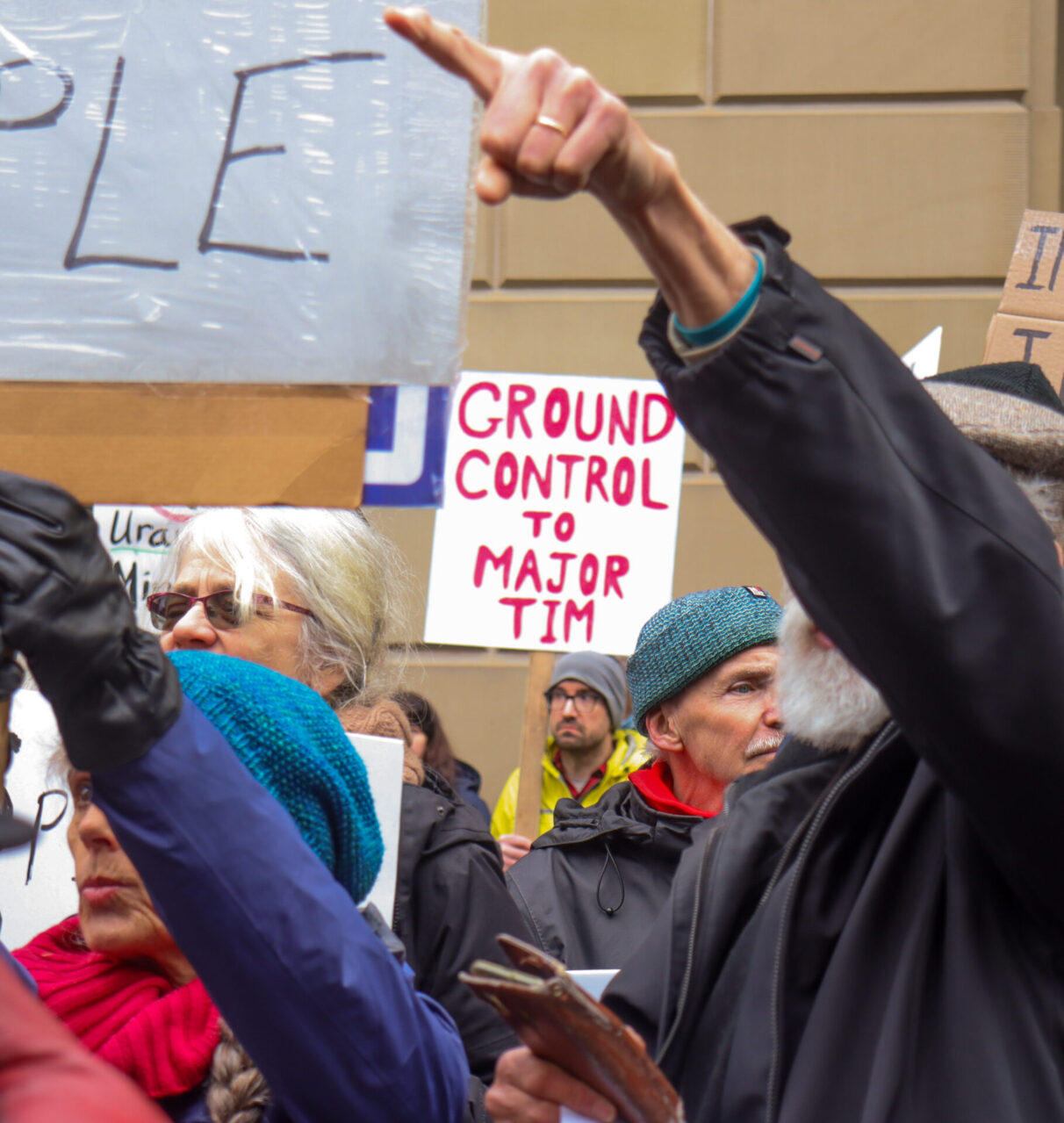

Freedom of information
Perhaps all the Joseph Howe iconography is auspicious. Many Nova Scotians are dedicated to safeguarding our democracy. Based right here, for example, is the Centre for Law and Democracy. Through reviews and reports it defends the human right to information internationally and keeps an eye on the right to information within Canada.
Centre president and founder Toby Mendel’s Zoom square showed him in his study in Franey Corner, Lunenburg County. In late 2023, his organization submitted 35 recommendations to the Nova Scotia government’s review of the Freedom of Information and Protection of Privacy (FOIPOP) Act. The Centre ranks Nova Scotia’s access to information legislation seventh out of the 13 provinces and territories, 25 points below Newfoundland and Labrador in first (that province reworked its laws after a government fraud scandal in 2015) and only seven points above Alberta and New Brunswick at the bottom.
The Centre started this year by criticizing changes proposed by the Houston government. They included allowing government departments to deny public access to information based on a list of subjective conditions. Requests could be denied for being “trivial” or “unduly repetitive or systematic.” Tricia Ralph, the outgoing Information and Privacy Commissioner, wrote to the Legislature asking for an amendment. There are ways, she wrote, to make necessary changes to this legislation that don’t “restrict access to information rights.”
“Too systematic!” Mendel’s voice pitched up in frustration. “That sounds like a very good, academic request to me… It’s like, what? I don’t even know what that means!”
A couch, a wooden chair and a bookshelf peeked out from under piles of papers around him. Mendel founded the Centre for Law and Democracy in 2010. Before that, he worked to advance the right to information at Article 19, a human rights organization in London, England. For 30 years he has worked to protect the human right to free expression and information.
It’s “democratically disrespectful,” he said, for the Houston government to “ignore all of the important amendments that we proposed” and “pop out a few rubbish amendments.” Mendel is tired of Nova Scotia’s culture of secrecy. The government’s job, he believes, is to keep and care for records, not hoard them. “Anyone should be able to get any information that doesn’t have to be kept secret for a good reason.”
The day after Ralph sent her letter, Houston said he might withdraw the proposed FOIPOP changes. Later that same day, Chender criticized the government for trying to deprive people of truth and unbiased information. The reason Houston would want that, Chender said, is that removing truth and information “it becomes easier to rule without question.”

Complaining is a virtue
Although government departments won’t get extra allowance to avoid access to information requests, Nova Scotia scores low in the Centre for Law and Democracy’s rankings for a reason.
If a government department won’t release information requested by the Info and Privacy Commissioner, someone has to appeal in court. When campaigning in 2013, Liberal leader Stephen McNeil said the government, not the requesting person, should have to appeal if it doesn’t like release recommendations. But when he won, Premier McNeil went back on that promise.
Houston, in Opposition at the time, was scrutinizing McNeil’s government spending on the ferry to Maine. The Tories took the Liberals to court to get the information released – and won.
In 2021, it was Houston’s turn to campaign for premier. He echoed McNeil, saying he’d give the Info and Privacy Commissioner order-making power. But now he, too, has broken his promise. If Tim Houston doesn’t want you to know something, you will have to take the government to court.
Also this winter, journalists were shocked when Houston broke a free speech tradition. Since before Confederation, reporters had asked politicians questions in a common space right outside the Legislative Chamber. In January, without consultation, they were told to cross the street to a media room instead. (It has better teleconference infrastructure, so remote reporters could ask questions.) Onsite reporters had to decide between missing part of the in-House discussions and getting answers from politicians.
After press outcry and boycotting of the room, the tradition was almost restored. Houston now faces the scrum – from behind a podium – in a room near the Legislative Chamber.
“Our rights to freedom of the media and the public’s right to know are clearly under assault,” said Brent Jolly, the outspoken president of the Canadian Association of Journalists. “Not just in Nova Scotia, but across North America and right around the world.”
Of 140 countries assessed by the Centre for Law and Democracy, Canada’s right to information laws put us in 53rd place. (The United States in 78th.)
While reporters’ accessibility is a “good concern,” Jolly maintains there should have been an examination of potential impacts and losses “before actually suggesting those changes.”
His point questions the sometimes bullish nature of this government’s push for efficiency. PC MLA Marco MacLeod calls it making hay while the sun shines. The BuildNS line is “More, Faster.” Houston’s campaign slogan was “Make It Happen.”
Making it happen
Then came the winter sitting of the Legislature. Suddenly Premier Tim Houston, who through his first term had worked to appear reasonable and solutions-based, turned to gaining the power he wanted to have government run his way.
In the November 26 election the Tories won more than two-thirds of MLAs’ votes. With that many seats, Nova Scotia’s PCs have “an enormous amount of control and power and that should be enough for you,” said Centre for Law and Democracy president Mendel. “But apparently it wasn’t.”
Scrapping the Annual Accountability Report on Emergency Departments was another gift the supermajority government wanted to give itself. The report fuels a slew of critical headlines when it comes out, since among other things it tracks emergency department wait times and closures. The government offered the YourHealthNSApp (which gives users real time information on wait times, faster) as an alternative to the annual analysis.
It also closed Communications Nova Scotia, which was created in 1996 to ensure “objective and non-partisan” communications. CNS staff was reassigned to work as media contacts for government departments.
When the PCs tried to give themselves the power to fire the auditor general (currently Kim Adair, whose office publishes reviews of government spending, among other things) the public drew the line. The government aimed to do that, and restrict what reports made it into the open. The attempt was given up after a barrage of critical letters and articles. Mendel said it’s good “there was enough life in the system” that public outcry pressured the government to backtrack.
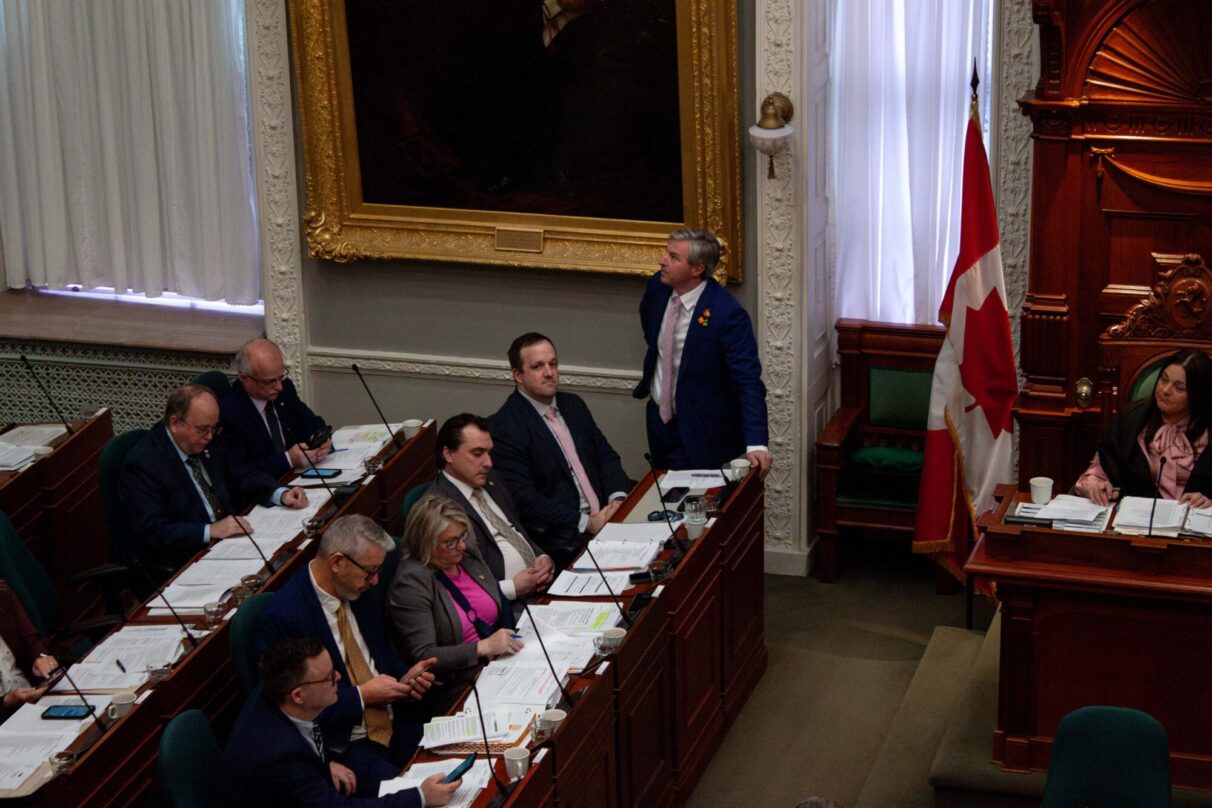
caption
Tim Houston standing beside his front bench of Tory MLAs. To the right is speaker Danielle Barkhouse.Louise Carbert, a political science professor at Dalhousie, thinks the “controversy has sort of disappeared now.” Houston backed down quickly, she said, because he didn’t expect to meet so much resistance. “He made it seem as though he wasn’t even really aware of what was going on.”
Jolly called it a political trial balloon, part of a playbook “to see, like, ‘okay if the public gets outraged, well, we can easily walk that back… we can feign ignorance at any time’.”
It might be an ungenerous read, he said, but lack of pushback being understood as “tacit consent” is a slippery slope. It can lead to government doing what it likes without public consultation.
The rescue of Kim Adair might leave people with the sense of a “crisis averted.” But really, Jolly said, Nova Scotia is returning to a baseline “which is a broken, archaic system.”
Uncertain, changing
Job security means the auditor general can critique the government without fear of retribution. The same is important for civil servants who do non-partisan work that keep the province running. But the Houston government wants to give itself the power to fire non-unionized civil servants without cause. Those workers would also be excluded from protections in the Labour Standards Code.Speaking at a public input meeting, Pat Clahane, a Justice Department lawyer who retired after 29 years in the civil service, called the changes a “nuclear bomb.” Someone like Robert Strang, the province’s Chief Medical Officer of Health, she said, “would have less job security than someone who had been slinging coffee and donuts for 12 years.”
On the same day the auditor general’s independence was first threatened, the government made a move to control how long House debates can go on. It was successful. Now, the option is always there to cut the Opposition’s debate time from an hour to just 15 minutes.
When debates happen in the House of Assembly, MLAs aren’t allowed to address each other directly or make eye contact. They do both quite a lot anyway, and receive much chastising, eye-rolling, and demands for “order” from the Speaker, a middleman they can address and look at. The speaker is currently PC MLA Danielle Barkhouse. During on the record discussions between MLAs she’s basically a babysitter with extensive knowledge of the workings of provincial government.
When MLAs speak their peers can clap, jeer, bang tables, and interrupt until the Speaker has had enough. When a government member speaks, it can get cacophonous, since they have 43 of 55 seats. The Opposition rallies brave smatterings of applause too, but with 12 seats, don’t fill the high-ceilinged chamber quite as well. Opposition members consist of nine New Democrats, two Liberals, and one independent, Elizabeth Smith-McCrossin.
The legislature doesn’t have a set calendar. This sometimes leaves MLAs scrambling for childcare as the House has been known to sit until midnight. Smith-McCrossin suspects this is done to inconvenience the Opposition.
Smith-McCrossin joined the PCs in 2017 but was kicked out in 2021. “I was always in trouble,” she said. “Because my focus was representing the people… I will never be someone else’s puppet.”
She said when she and Houston sat together as Opposition PCs, the Liberal majority made them feel their voices weren’t valued and rarely considered their amendments. “That sort of spirit has continued under this government and I would say… is exponentially greater.”
She’s worried because during the election campaign Houston said nothing about so many of these actions.
In countries where democratic freedom has been eroded, Smith-McCrossin said, it happens “in small bits at a time,” not all at once. But here in Nova Scotia, she says, during this rough winter, the Tim Houston cabinet took a great many steps to consolidate power in itself.
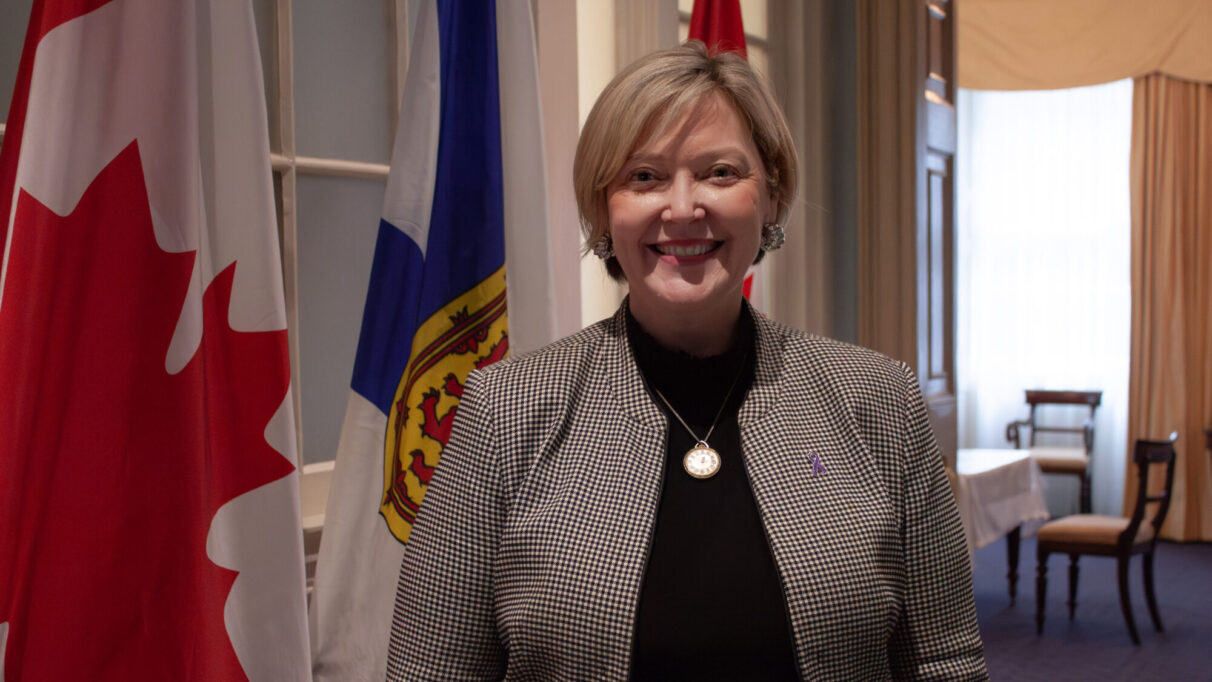
caption
Independent MLA Elizabeth Smith-McCrossin.
About the author

A. Zwissler
Antonia Zwissler, who came to Halifax from Lima, Peru, will graduate this spring with a Bachelor of Journalism (Honours) degree from the University...
